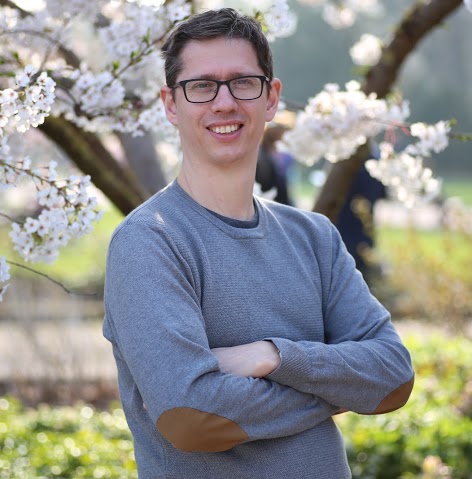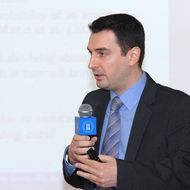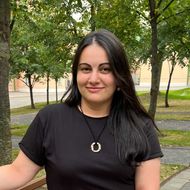- A
- A
- A
- ABC
- ABC
- ABC
- А
- А
- А
- А
- А
- HSE University
- Faculty of Economic Sciences
- Department of Theoretical Economics
- News
- Paper of Eren Arbatli in European Economic Review
-
Department
109028, Moscow,
Pokrovsky Boulevard 11, Rooms: S1029, S1030
Phone: +7 (495) 772-95-90*27172, 27174, 27601, 28270
The Department of Theoretical Economics brings together highly qualified specialists in various fields of economics, including micro and macroeconomics, monetary and financial theory, economic history and the history of economic thought. Our mission is to teach economic disciplines at HSE on the level of leading Western universities.
Karpov A. V., Markström K., Riis S. et al.
Discrete Applied Mathematics. 2025. Vol. 370. P. 57-70.
In bk.: Human-Centric Decision and Negotiation Support for Societal Transitions: 24th International Conference on Group Decision and Negotiation, GDN 2024, Porto, Portugal, June 3–5, 2024, Proceedings. Cham: Springer, 2024. P. 102-113.
Andreyanov P., Krasikov I., Suzdaltsev A.
arxiv.org. Theoretical Economics. Cornell University, 2024
109028, Moscow,
Pokrovsky Boulevard 11, Rooms: S1029, S1030
Phone: +7 (495) 772-95-90*27172, 27174, 27601, 28270

Paper of Eren Arbatli in European Economic Review

Below is a short summary of the paper.
In this paper we offer evidence for highly retrospective voting. We trace the origins of party identification to historical gratitude towards a political movement and demonstrate how such gratitude can persist in the collective memory of citizens.
There are many instances where historical shocks left a persistent mark on the political behavior of affected groups. Take the Republican support by the Vietnamese- and Cuban-Americans or strongly pro-Democrat preferences among African Americans in the U.S. to name a few. Yet, it is not easy to empirically disentangle historical and contemporary drivers of voting behavior.
To make progress, we study a historical episode from Armenian national liberation struggle in the Ottoman Empire using a novel village-level data we have compiled. We investigate the long-term effects of the armed support the Armenian Revolutionary Federation (ARF) gave to Armenians of Sasun region during the resistance to Ottoman forces and the assistance it provided to Genocide survivors from Sasun as they settle to Russian Armenia.
We find that villages with Sasun ancestry exhibit a persistently higher support for the ARF than other villages without Sasun ancestry. Our field work in selected villages suggests that local history of Sasun plays a crucial role here. For more systematic evidence, we analyze first names of voting age residents. We show that descendants of Sasun migrants are more likely to name their sons after ARF rebels who fought in Sasun region and helped Sasun refugees escape into Russian Armenia.
Representation of these “special” names is significantly higher for the cohort born during the Nagorno-Karabakh War (1988-1994) than previous or later cohorts. It seems that the war strengthened patriotic feelings and reinforced historical gratitude for ARF heroes. Moreover this cohort effect is visible only among residents of Sasun-ancestry villages and nowhere else! The figure below shows how the relative prevalence of first names of ARF-affiliated heroes who were active in Sasun region evolves across birth-cohorts.
One take-away from our research is that providing security, relief and on-the-ground support to civilians, whose lives and livelihoods are under threat, can enable political organizations or armed groups to cultivate a strong and long- lasting support base. A second take-away is that collective memories about critical events can persist and motivate political choices of later generations. This also implies that prompting positive memories about the party might be an effective campaigning strategy.
References:
Arbatli, C. E., & Gomtsyan, D. (2019). “Voting Retrospectively: Critical Junctures and Party Identification”. European Economic Review. Volume 119, 2019, pp. 356-390.
Cemal Eren Arbatli
Assistant Professor at the Department of Theoretical Economics
- About
- About
- Key Figures & Facts
- Sustainability at HSE University
- Faculties & Departments
- International Partnerships
- Faculty & Staff
- HSE Buildings
- Public Enquiries
- Studies
- Admissions
- Programme Catalogue
- Undergraduate
- Graduate
- Exchange Programmes
- Summer Schools
- Semester in Moscow
- Business Internship
-
https://elearning.hse.ru/en/mooc/
Massive Open Online Courses
-
https://www.hse.ru/en/visual/
HSE Site for the Visually Impaired
-
http://5top100.com/
Russian Academic Excellence Project 5-100
- © HSE University 1993–2025 Contacts Copyright Privacy Policy Site Map
- Edit






